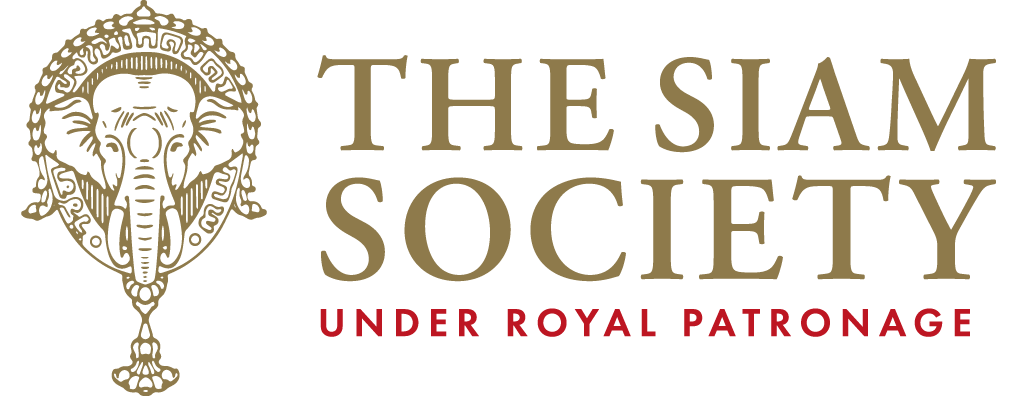Explore Urban Bangkok’s Birdlife: Benjakitti Park
Does a morning walk through Bangkok’s new and widely praised Benjakitti Park, learning about the birds that frequent the city, sound interesting? Have you wondered what the names and habits are of the birds that we see around us every day in Bangkok? If so, the Natural History Section of The Siam Society is starting a series of birding programmes to provide opportunities for members and non-members to learn about and see the exceptional richness of birdlife in Thailand.
The Siam Society is collaborating with the Bird Conservation Society of Thailand to offer a 3-hour urban birding programme on Saturday, 13 December 2025, at Benjakitti Park, Bangkok. Both beginners and experienced birders alike are welcome to join. The walking tour of the park will be conducted by the Bird Conservation Society, the Thailand Partner of Bird Life International, under the guidance of a skilled leader provided by the Bird Conservation Society, who will identify the birds we see by both their English and Thai names. The tour will also be accompanied by Mr Jim Stent, Council Member of The Siam Society.
One of Asia’s megacities, Bangkok is not the first place that comes to mind as a place to watch birds and or enjoy nature. Public green spaces occupy a relatively small proportion of the city, amid its present-day glass and steel “forest” of multi-storey constructions. Even so, the remaining urban green spaces hold a surprising diversity of birds and other wildlife. Benjakitti Park is one such green area, established on 72 hectares of land reclaimed for public use from the Tobacco Authority of Thailand, and one of the two or three best birding locations in the city. Resident species, present year-round, include the exotic-looking Coppersmith Barbet, the feisty Malaysian Pied Fantail, and the jaunty Oriental Magpie Robin. Most grass lawns will support a pair of the latter species, which often nests in crevices in sheltered man-made structures. Two species of nectar-feeding sunbirds, the ubiquitous Ornate Sunbird (formerly known as the Olive-backed Sunbird) and the scarcer Brown-throated Sunbird, are often found in flowering trees. Another diminutive fruit and nectar feeder is the Scarlet-backed Flowerpecker, with its vividly plumaged males. Yet even the brownish drab females still sport a patch of scarlet red in their plumage. Whistling calls may announce the arrival of the smartly patterned and insectivorous Common Iora, with its bright yellow underparts and black-and-white striped wings, or even a Black-naped Oriole.
Some of us may already know such species from our house gardens. But how about the Indochinese Roller, which explodes into colour, displaying bright blue flashes as it takes wing? Or the Blue-tailed Bee-eaters that wheel overhead? Additionally, in this, the boreal winter season, the tropical resident birds in Bangkok’s parks and gardens are joined by a diverse array of migratory species that have seasonally fled their frigid northern Asian breeding areas for warmer climes. These include the Yellow-browed Warbler, Asian Brown Flycatchers and Taiga Flycatchers, Blue Rockthrush, with perhaps a Brown Shrike or another scarce landbird migrant thrush, chat or flycatcher.
When
Leader
with Mr Vatcharavee Sriprasertsil
Bird Conservation Society of Thailand (BCST)
and Mr Jim Stent
Council Member of The Siam Society
Booking
The tentative programme will be as follows:
| Saturday, 13 December 2026: Benjakitti Park | |
| 07:15 | Meet at Benjakitti Park entrance no. 1. |
| 07:30 | Begin the Birdwatching in Benchakitti Park. (3 hours birding) |
| 11:00 | Finish the birdwatching tour at entrance no.1. |
|
The Siam Society reserves the right to change the programme as necessary. |
|
Important notes:
– The Siam Society may utilise photos taken from study trips, lectures, performances, and other activities as part of its public relations and marketing campaign. These photos, which may sometimes contain image(s) of activity participants, can also be featured on The Society’s website and other online social media channels.
– Participants should come equipped with binoculars, a hat, sunscreen, a full water bottle, and a snack for mid-morning energy. If you do not have binoculars, the Society is able to supply binoculars to you for the walk if you notify us in advance.
– As a part of our effort to address the issue of global warming, The Siam Society strongly supports the reduction of plastic waste. We kindly ask all participants to fill their own water flasks at home and bring them along for the trip.
– The group is limited to a maximum of 18 participants.
-Booking:
Contribution of THB 1,500 for TSS and BCST members (THB 2,300 for non-members). Binoculars rent for THB 50. The contribution will cover the costs incurred to make this trip possible. There is a 4% surcharge for credit/debit card payments to cover bank charges. Please pay by cash or cheque payable to “The Siam Society Under Royal Patronage”. Transfer can also be made to The Siam Society travel account at TMBThanachart Bank (ttb), saving account no. 053-2-18000-7, swift code: TMBKTHBK or by scanning the QR code on your right. Once payment has been made, please email the deposit or transfer the docket to us.

For further information and bookings, please contact Khun Thun at 02-661-6470-3 ext 205, or studytrips@thesiamsociety.org.The Society’s office is open from 09:00 to 17:00, Tuesday to Saturday.
More upcoming study trips
-
 Naadam Festival and Central Mongolia: A Cultural JourneyการศึกษาสัญจรSaturday, 4 to Monday, 13 July 2026
Naadam Festival and Central Mongolia: A Cultural JourneyการศึกษาสัญจรSaturday, 4 to Monday, 13 July 2026 -

-

-
 Ayutthaya’s Golden Period: The Treasures of the Royal Court’s CraftsmanshipการศึกษาสัญจรFriday, 27 March 2026
Ayutthaya’s Golden Period: The Treasures of the Royal Court’s CraftsmanshipการศึกษาสัญจรFriday, 27 March 2026 -
 A Hiking Trip to Minority Villages in Guizhou, ChinaการศึกษาสัญจรThursday, 26 February to Friday, 6 March 2026
A Hiking Trip to Minority Villages in Guizhou, ChinaการศึกษาสัญจรThursday, 26 February to Friday, 6 March 2026
